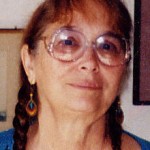Speech given at the Women’s Equality Conference
The Coalition
of Labor Union Women is the only national organization for union women.
It is a "constituency group" of the AFL-CIO, with 20,000 members
from 60 unions, organized into 75 chapters nationwide. CLUW "strives
to make organized labor and the public more sensitive to the needs of
working women and their families."
When CLUW
was first organized, in Chicago in 1974, it adopted four goals: Organizing
the unorganized; Promoting affirmative action; Increasing women’s participation
in their unions; Increasing women’s participation in political and legislative
activity. Since then, CLUW has spoken out on many important issues, including
pay equity, women’s health and workplace safety, child care, reproductive
rights, sexual harassment, women in non-traditional jobs, family medical
leave, NAFTA, GATT and maquiladoras and sweatshops, domestic violence,
social security, full employment and national health care.
In 1980,
CLUW’s second president, Joyce Miller, became the first woman on the AFL-CIO
executive council. CLUW’s current president, Gloria Johnson, is also a
member of that body.
CLUW is governed
by a National Officers Council, composed of 19 women union leaders from
a diverse cross-section of unions, and a National Executive Board of more
than 350 delegates from unions and from CLUW chapters, elected in proportion
to their membership in CLUW. The Board meetings, held three times a year,
are usually preceded by educational conferences such as recent ones on
affirmative action, social security, and domestic violence.
CLUW conventions
and Executive Board meetings are notable for the ethnic and racial diversity
of the delegates, and for the leadership roles of African-American women.
I have recently
learned that CLUW was very supportive of the organization of Pride at
Work, the gay/lesbian workers organization, and its acceptance by the
AFL-CIO as a "constituency group" within the union movement.
CLUW encourages
the participation of its chapters in Central Labor Councils, and the chapter
that I belong to is an active participant in the Sacramento Central Labor
Council, with three delegates. This labor council is not a very progressive
council, and its executive board has no women members (except the labor
council president, who is a member of CLUW) however, CLUW is a voice there
for women’s issues and other progressive matters.
All the CLUW
delegates are members of the Labor Council’s Human Rights Committee, which
we reorganized after it had been moribund for several years. We also form
a link between the labor movement and peace and solidarity organizations
like WILPF, as well as women’s organizations such as NOW. For example,
two years ago NOW held its state convention in a non-union hotel in Sacramento.
We raised that issue very strongly with them, and this year the state
convention will be held in a unionized hotel. We also got WILPF to have
their August Women’s Peace Event flyers printed by a union printer, and
then got the Labor Council to endorse the event and make a donation.
Over the
last few years, our CLUW chapter has held workshops on women’s participation
in unions, lobbying state government, and sexual harassment, and has a
workshop on childcare planned for May. We conducted a workshop on women’s
issues at the Human Rights conference organized by the California State
Workers Association (SEIU #1000) and organized a Working Women’s Health
Fair in a low-income community in Sacramento.
In addition
we have participated in demonstrations supporting Justice for Janitors,
home care workers, voting rights, and against sweatshops, to name only
a few.
For the past
five years we have held an annual International Women’s Day awards reception,
where we have been able to bring national woman labor leaders, such as
Gloria Johnson and Linda Chavez Thompson, to speak in our community, and
have honored local woman union and community activists.


 Join Now
Join Now